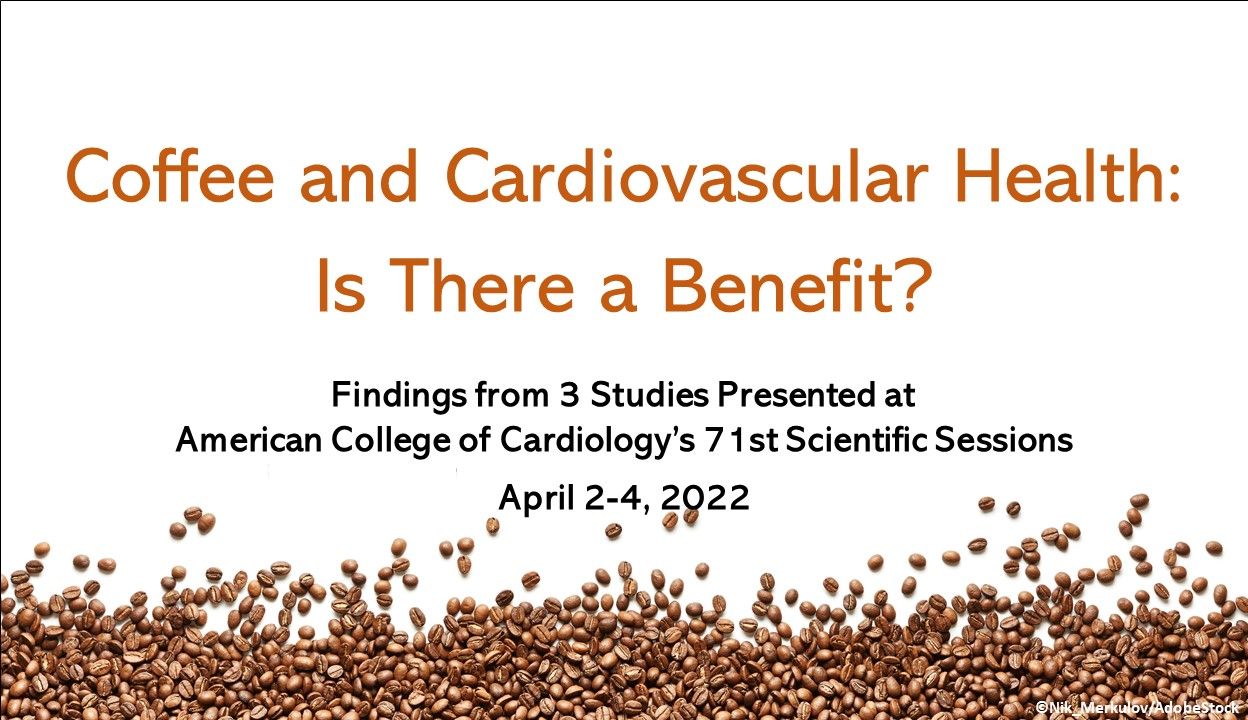Latest Conference Articles

New Study Found High Prevalence of Undiagnosed Cognitive Impairment After Myocardial Infarction
April 1st 2022
ACC 2022. Findings suggest that more attention to monitoring cognitive functioning after a myocardial infarction is needed.

Popular Hypertension-related Videos on TikTok Often Not Backed by Medical Literature, Found New Study
April 1st 2022
ACC 2022. Study assessed hypertension-related TikTok videos and found that 42% addressed alternative medicine, more than twice the number that focused on medical treatments.

Racial Minorities Less Likely to Receive CPR Regardless of Location, Community Makeup
April 1st 2022
ACC 2022. Black and Hispanic persons were 41% less likely than white individuals to receive CPR after cardiac arrest in public and 26% less likely when the event occurred in their home.

Coffee and Cardiovascular Health: Is There a Benefit?
March 31st 2022
ACC 2022. Can a couple of cups of coffee per day keep cardiovascular disease at bay? Findings from 3 new studies shed light.

Noise Pollution and MI: New Jersey Study Finds a Significant Association
March 31st 2022
ACC 2022. Approximately 5% of hospitalizations for acute MI in the state were found attributable to elevated levels of traffic noise.

American College of Cardiology 71st Scientific Sessions: Science Preview, April 2, 2022
March 31st 2022
ACC 2022. ACC late-breaking clinical trial sessions begin Sat, April 2, 2022. Our short slide shows highlight the studies of interest to primary care clinicians.

American College of Cardiology 71st Scientific Sessions: Science Preview, April 4, 2022
March 31st 2022
At ACC 2022 on Sunday, 4-2, look for studies on icosapent ethyl and alirocumab, landmark research on HFrEF, and a novel anticoagulant for atrial fibrillation.

American College of Cardiology 71st Scientific Sessions: Science Preview, April 3, 2022
March 31st 2022
At ACC 2022 on Sunday, 4-2, look for studies on icosapent ethyl and alirocumab, landmark research on HFrEF, and a novel anticoagulant for atrial fibrillation.

Depression Following Myocardial Infarction Raises Stroke Risk in US Adults
March 30th 2022
ACC 2022. Large study of US adults showed those with depression following MI were 50% more likely to experience a stroke than those who did not have depression.

Benefits of Exercise in CVD Risk Reduction More than Double in Anxiety, Depression
March 30th 2022
ACC 2022. Exercise lowers CVD risk in part by reducing the same neurobiologic activity associated with depression and anxiety, according to study authors.
